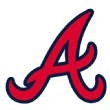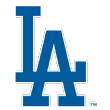We just saw three division champs eliminated from the MLB postseason in their league division series between both circuits, including a pair of teams with more than 100 wins in the American League Central-champion Twins and the Dodgers, seven-time repeat champs of the National League West. Not that the NL East-winning Braves (97 wins) or AL wild-card Rays (96) were chumps, but as impressive as that quartet of teams was during the regular season, all now head back to the drawing board to decide what they'll need to do during the offseason to earn a return ticket to October.
 Atlanta Braves
Atlanta Braves
What went wrong: Giving up 10 runs in the first inning of a deciding series game is never the way a team wants to end its season, but the wheels came off for the Braves after they blew many opportunities to clinch the series in Game 4. There wasn't a single weakness that caused their season to end, and a healthy Freddie Freeman might have changed the team's fortunes. If pinpointing a problem is necessary, the blame lies with the arms in not giving the offense an opportunity to take a lead in some games and then blowing that lead in others.
Major free agents: You definitely have to put Josh Donaldson in this category. The Braves landed perhaps the bargain of the offseason in getting Donaldson on a one-year deal. The former MVP put up a great season with 37 homers and nearly 5.0 wins above replacement (4.9 via FanGraphs' WAR blend). The Braves would certainly benefit in the short term by bringing Donaldson back to man third base, and with Austin Riley inconsistent and able to play the outfield, Donaldson's return would make a lot of sense.
Then there's starting pitcher Dallas Keuchel. The lefty proved to be a bargain as well, solidifying the rotation and providing solid innings down the stretch. The Braves need starting pitching, but Keuchel heads to free agency in a relatively deep market for quality starters.
What they'll need to do this winter to contend again in 2020: With a good young core of Ronald Acuna Jr., Freeman, Ozzie Albies and Dansby Swanson on the position-player side and Mike Foltynewicz, Mike Soroka and Max Fried in the rotation, the Braves should contend again next season. They still have some work to do, however.
If they don't sign Donaldson, they are going to need to replace his production. It seems doubtful the club would invest in a lot of years in a free-agent outfielder to replace Nick Markakis, with Christian Pache and Drew Waters on the way up at some point in the next couple years. Brian McCann's retirement will necessitate finding another catcher to pair with Tyler Flowers, who is signed to a cheap team option for 2020.
The Braves need at least one starting pitcher with the departure of Keuchel. They have a $12 million option on Julio Teheran and multiple young prospects to provide a rotation opportunity, but they could use a top-three (or better) starter to go with Soroka and Foltynewicz. If we assume they are out of the market for Gerrit Cole and Stephen Strasburg (if he opts out), then Madison Bumgarner, Jake Odorizzi and Zack Wheeler would all be good fits. Kyle Gibson, Rick Porcello or bringing back Keuchel would also make sense. Atlanta's deep farm system could also make a trade appealing.
The Braves have a very good nucleus, but they need to add a few more good players if they want to make the playoffs again next season. -- Craig Edwards
 Los Angeles Dodgers
Los Angeles Dodgers
What went wrong: Aside from their 10-run outburst in Game 3 in the NL Division Series, the Dodgers scored just 12 runs in the other four games, including just eight in 39⅓ innings (1.83 per nine) against starters -- not starters-as-relievers, ahem -- Stephen Strasburg, Max Scherzer, Patrick Corbin and Anibal Sanchez. MVP candidate Cody Bellinger (.211/.286/.263 in 21 plate appearances), Corey Seager (.150/.190/.200 in 21 PA), Will Smith (.077/.250/.077) and A.J. Pollock (0-for-13 with 11 strikeouts) were particularly dreadful.
For all of that, the Dodgers had a 3-1 lead in Game 5 and were nine outs from advancing when manager Dave Roberts' numerous head-scratching pitching choices ultimately derailed them. With lefties Adam Kolarek and Julio Urias and righties Kenta Maeda and Kenley Jansen at his disposal, Roberts instead called upon Clayton Kershaw -- a choice telegraphed in advance and based on nostalgia for his bygone dominance -- to bail them out of a two-on, two-out jam in the seventh inning after Walker Buehler had been left in too long. Kershaw struck out Adam Eaton to end that threat, but was allowed to continue in the eighth against righty Anthony Rendon and lefty Juan Soto, both of whom homered to tie the game. Then, after Joe Kelly threw a perfect ninth, Roberts let him load the bases with nobody out in the top of the 10th and surrender the decisive grand slam to Howie Kendrick before departing.
The path to the bubbly was clear, but Roberts got too way cute.
Major free agents: Either Rich Hill (three years, $48 million) or Hyun-Jin Ryu (one year, $17.9 million) could return now that their contracts are up, the former on an incentive-laden, short-term deal, the latter on a bigger one. The clearance of Russell Martin ($16.4 million average annual value, an amount actually paid by Toronto) is significant for the purposes of trying to avoid the competitive balance tax threshold, which the Dodgers exceeded by $3.8 million. With infield depth galore, presumably they'll decline their $13 million option on Jedd Gyorko.
What they'll need to do this winter to contend again in 2020: The Dodgers are not about to stop contending, but bolstering the rotation and bullpen is the priority. Even with Urias and/or Dustin May seemingly ready to join Buehler, Kershaw and Maeda in the rotation, the Dodgers should consider more firepower. Either Strasburg, a Southern California native who can opt out of his current deal, or former UCLA star Cole, who will certainly be a free agent, would fit.
However, president of baseball operations Andrew Friedman has been averse -- perhaps too averse -- to big-money free-agent deals, with Pollock's four-year, $55 million pact L.A.'s largest outlay. With Kershaw no longer invincible, it's time to swallow hard and dig deep. If that doesn't happen, Zack Wheeler's ability to provide 180 innings could give him the edge on Ryu, who met that mark this year for the first time since 2013, his stateside rookie campaign.
As for the bullpen, Kelly's three-year, $25 million deal is yet another reminder that you don't always get what you pay for. Trading for Ken Giles, Kirby Yates or another club-controlled reliever -- one who could succeed Jansen as closer if necessary -- might be the way to go. -- Jay Jaffe
 Minnesota Twins
Minnesota Twins
What went wrong: The homer-happy offense went cold at the wrong time and the pitching couldn't contain a talented Yankees offense. After a great regular season, nothing went right for the Twins in the playoffs.
Major free agents: You can start with Jake Odorizzi. The 29-year-old righty had a fantastic season for the Twins with a 3.36 FIP, 3.53 ERA and a 4.3 fWAR campaign heading to free agency. The Twins don't have enough internal options to replace Odorizzi, so if they aren't bringing him back, they'll have to head to free agency or the trade market to replace him.
He's not the only rotation member hitting the market. Kyle Gibson might not be as big a loss as Odorizzi, but he has been providing quality innings for the Twins the past couple years. A difficult bout with ulcerative colitis might make a reunion with the Twins on a shorter deal an ideal situation, as Gibson faded down the stretch as he battled with illness.
Finally, there's Michael Pineda, another important member of Minnesota's rotation before a suspension for performance-enhancing drugs ended his season. Pineda heads to free agency still needing to serve out the rest of his suspension during the first month of next season, and while the suspension dampened 2019, his quality innings will need replacing.
From the lineup, after getting non-tendered by the Brewers last winter,Jonathan Schoop signed with Minnesota and had a decent season, but his low walk totals kept the impact of his batting line average.
What they'll need to do this winter to contend again in 2020: The Twins need to focus on their rotation. They lose Schoop and catcher Jason Castro, but Mitch Garver had already taken over behind the plate and Luis Arraez might be able to hold down second base until Royce Lewis pushes Jorge Polanco off shortstop. Byron Buxton should come back in center, with Max Kepler and Eddie Rosario filling out the outfield. Minnesota already exercised its option on Nelson Cruz at designated hitter. It could try to upgrade at first base from C.J. Cron.
As for the pitching, if the season started tomorrow, the Twins' rotation would include Jose Berrios and Martin Perez. And then ... Randy Dobnak? Brusdar Graterol? Lewis Thorpe? The team could bring back some of its pending free agents, but the Twins need a ton of innings if they are going to compete with Cleveland in the AL Central next season.
The good news is they should have a lot of money to work with. Minnesota has around $40 million, and even doubling that for raises in arbitration means the Twins have enough payroll room to sign two good starting pitchers and still have money left over to fill other needs or sign a bullpen arm. -- Edwards
 Tampa Bay Rays
Tampa Bay Rays
What went wrong: After falling behind 0-2 in the AL Division Series against the twin buzzsaws of Justin Verlander and Gerrit Cole, the Rays fought back valiantly, chasing Zack Greinke and Verlander early and pushing the Astros to the brink. Unfortunately, starter Tyler Glasnow began Game 5 by tipping his pitches; five of the Astros' first six hitters reached base, plating four runs and producing a lead that proved insurmountable.
Major free agents: The Rays had an MLB-low $60 million payroll, their lowest since 2011, and only Charlie Morton and Kevin Kiermaier made more than $5 million, so it's fair to say that none of their free agents qualifies as "major." The biggest salaries coming off the books are those of catcher Travis d'Arnaud ($3.515 million) and right fielder Avisail Garcia ($3.5 million), useful players who each produced 1.8 fWAR. The former, a mid-May arrival who hit for a 107 wRC+ and was competent defensively, was far superior to Mike Zunino (44 wRC+, 0.3 WAR), while the latter rebounded from a dismal final season with the White Sox (93 wRC+, 0.1 WAR) with a 20-homer, 112 wRC+ campaign. Tampa Bay's weakness at catcher makes the 30-year-old d'Arnaud, who had his best season since 2015, an appealing target for retention.
What they'll need to do this winter to contend again in 2020: Winning 96 games on a shoestring budget is no easy task, particularly in a division where the Yankees and Red Sox annually spend over three times what the Rays do. This team has young and/or controllable players of quality at every position beside catcher, right and center field. That final spot is where the defensively spectacular Kiermaier -- signed through 2022 -- just had his second consecutive season with a wRC+ below 80; finding ways to improve that should be a priority.
The Rays will need to replace the production of Garcia. Austin Meadows is no great shakes defensively, but he could play right field more often and create room for someone like Edwin Encarnacion -- whom the team targeted last winter -- at designated hitter if his club option is declined, and the 37-year-old Encarnacion's $20 million option will likely be rejected by the Yankees. He would add firepower to an offense that ranked 21st in the majors with 217 home runs, with just four players reaching 20.
Another true starter would be a nice addition to the quartet of Morton, Glasnow, 2018 Cy Young winner Blake Snell and Yonny Chirinos. As it was, even with their heavy reliance upon openers, the Rays managed an MLB-best 76 FIP-minus (FIP-) from their starters, and their 82 ERA- ranked fifth. Likewise the bullpen was in the top four in both categories (83 ERA-, 89 FIP-).
If they choose not to keep developing Brendan McKay as a two-way player, he's got a leg up on the fifth starter's job, but a stopgap solution -- likely another opener -- would allow time for more seasoning if they want to continue developing his bat, which lags considerably behind his arm in terms of being MLB-caliber. -- Jaffe


